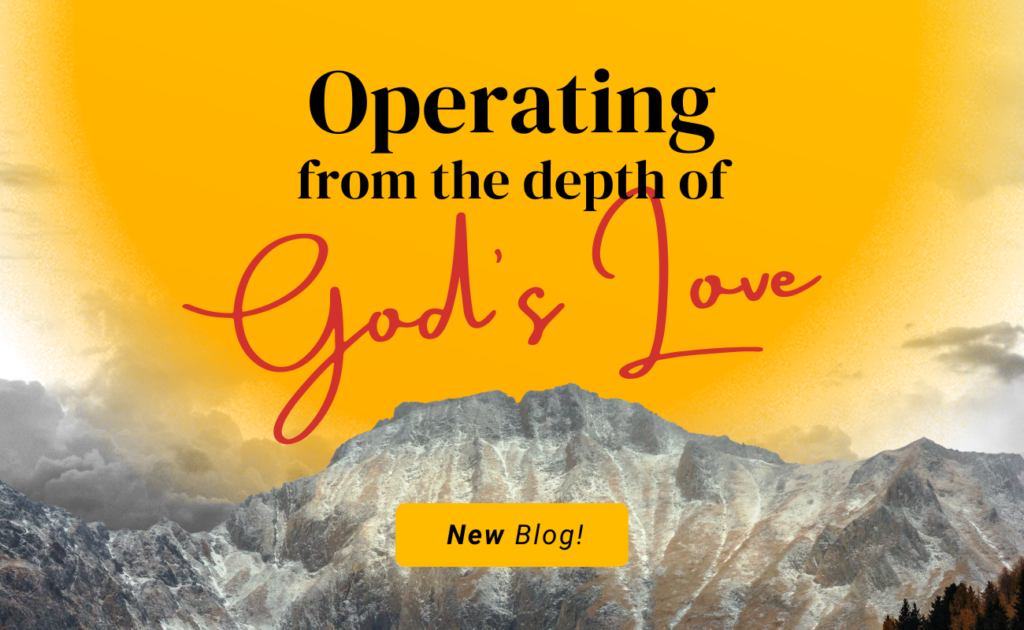Seeing Your Enemies Through Heaven’s Eyes
From the time of His baptism to the time of His ascension, Jesus spoke of one thing–the good news of the Kingdom (Matt. 4:23). That, He tells us, is what He was sent to do (Luke 4:43). And He sent out His disciples to do the same.
Jesus was obsessed with the Kingdom. And rightly so. He had just come from Heaven where the Kingdom stood in all its splendor, everything radiant in its beauty, everything in harmony with the love of God, everything at peace, everything bursting with life, brimming with joy. For Him, that was the real world. Earth, even at its best, was merely a dim and distorted reflection of all that existed in Heaven.
In the Sermon on the Mount, Jesus gave His first recorded teaching on the Kingdom of God. When He finished, Matthew says the crowd that heard it was amazed. G.K. Chesterton, the British essayist who was a contemporary of C.S. Lewis, described the sermon like this:
“On the first reading of the Sermon on the Mount you feel it turns everything upside down, but the second time you read it, you discover that it turns everything right side up. The first time you read it you feel that it is impossible, but the second time, you feel that nothing else is possible.”
Chesterton’s words are particularly applicable to the upside-down way that Jesus tells us to treat our enemies. In Luke 6:27-31, we are challenged to love our enemies and do good to those who hate or curse us.
God so loved—not Americans, not Muslims, not Jews, not Christians, not Republicans or Democrats—the world. He doesn’t want anyone to perish but wants everyone to come to repentance (2 Pet. 3:9). Everyone. The Father’s heart is for the Jew and the Gentile, for the slave as well as the free, for the woman along with the man. And that includes Muslims, whom many believe are our enemies. Muslims are not a problem but a promise.
The God of the Bible is a searching God, seeking to find us, regardless of how alone or afflicted we feel. It doesn’t seem to matter where we have ended up or how we have gotten there. It doesn’t matter into what physical wilderness we sought refuge. All that matters is that we are found and that we are brought home. The parables of the lost sheep, the lost coin, and the lost son all tell the same story—the story of how greatly we are loved, how greatly we are missed, and how happy Heaven is when we are found and brought home (see Luke 15).
That includes our enemies.
Take Saul of Tarsus, for example—a terrorist in the eyes of the early church, a jihadist against this emerging threat to his Jewish faith. He was a murderer, and he took pride in the fact that he did his murderous duty with such religious zeal (Acts 9:1-12). From the perspective of the early church, Saul was seen as an enemy. But that is not the way heaven saw him. Heaven saw him as a friend in the making.
There are a lot of ways an enemy can be dealt with. He can be threatened into silence. He can be tortured into compliance. He can be imprisoned or exiled, even murdered. Jesus does none of those things. Instead, Jesus seeks him out—not to censure him, not to intimidate him, not to harm him, but to love him. And in loving him, Jesus turned this most feared of enemies into the most faithful of friends. Look in Acts 9. Put yourself onto the scene, looking with Kingdom eyes and hearing with Kingdom ears. What do you see? What do you hear?
Now as he went on his way, he approached Damascus, and suddenly a light from heaven shone around him. And falling to the ground, he heard a voice saying to him, “Saul, Saul, why are you persecuting me?” And he said, “Who are you, Lord?” And he said, “I am Jesus, whom you are persecuting” (Acts 9:3-5, ESV).
What do you see? You see a light—not fire, not brimstone—but a heavenly light, dispelling hellish darkness that had blackened Saul’s heart. And what do you hear? You hear a voice. There is no anger in it, no animosity, no antagonism. But there is tenderness in it, tenderness tinged with sadness. “Saul, Saul…” The repetition of the name is reminiscent of His words to Martha when she came out of the kitchen, angry at her sister and at Jesus, accusing Him of not caring that she had left her to do the serving alone. “Martha, Martha,” He begins. And you can hear the tenderness in His voice, mingled with sadness. He doesn’t return her anger with anger. He corrects her, but in the gentlest of ways, without a critical spirit or a condescending tone (Luke 10:38-42). Then there is His final entry into Jerusalem the week before He weeps not for His destruction but for hers. And the words He speaks have the same tender but grieving tone. “Jeruslame, Jerusalem…” (Matt. 23:37).
After Jesus calls Saul by name, He doesn’t threaten him, rebuke him, or lecture him. There is no ridicule, no payback, no evening of the score. Just a tender, sorrowful questions. “Why?” And it sounds as if Jesus is confused, at a loss to understand all Saul’s animosity toward Him. “What are you persecuting Me?”
That was the beginning of their friendship—Jesus seeking out an enemy, and loving him instead of hating him, forgiving him instead of punishing him, blessing him instead of cursing him. Before then, Saul was filled with hate for Jesus and for anyone who followed Him. His hate was an obsession. Blaise Pascal once said “men never commit evil so fully and so joyfully as when they do it for religious convictions.” The bloody history of the world’s religions backs up Pascal’s claim. The three great Abrahamic religions—Judaism, Christianity, and Islam—are stained with the blood of their enemies.
When will it ever end? And if it doesn’t, where will it all lead?
Martin Luther King Jr. was right: “The chain reaction of evil—hate begetting hate, wars producing more wars—must be broken, or we shall be plunged into the dark abyss of annihilation.”
How can that chain reaction be broken?
By the radical principles that Jesus taught in the Sermon on the Mount—loving , forgiving band lessing our enemy.
However difficult it was to treat His enemies like that, Jesus practiced what he preached. He lived by those principles; He died by those principles. And in doing so, He showed the world how to step back from the abyss.
This blog is an excerpt from Leif Hetland’s book Seeing Through Heaven’s Eyes. You can purchase your copy by clicking here.
See other blogs
Operating from the Depths of God’s Love
Hope Alive by Paul Yadao!
Want to stay connected?
Weekly bite-sized wisdom designed
to equip, educate, and empower you in the journey.



